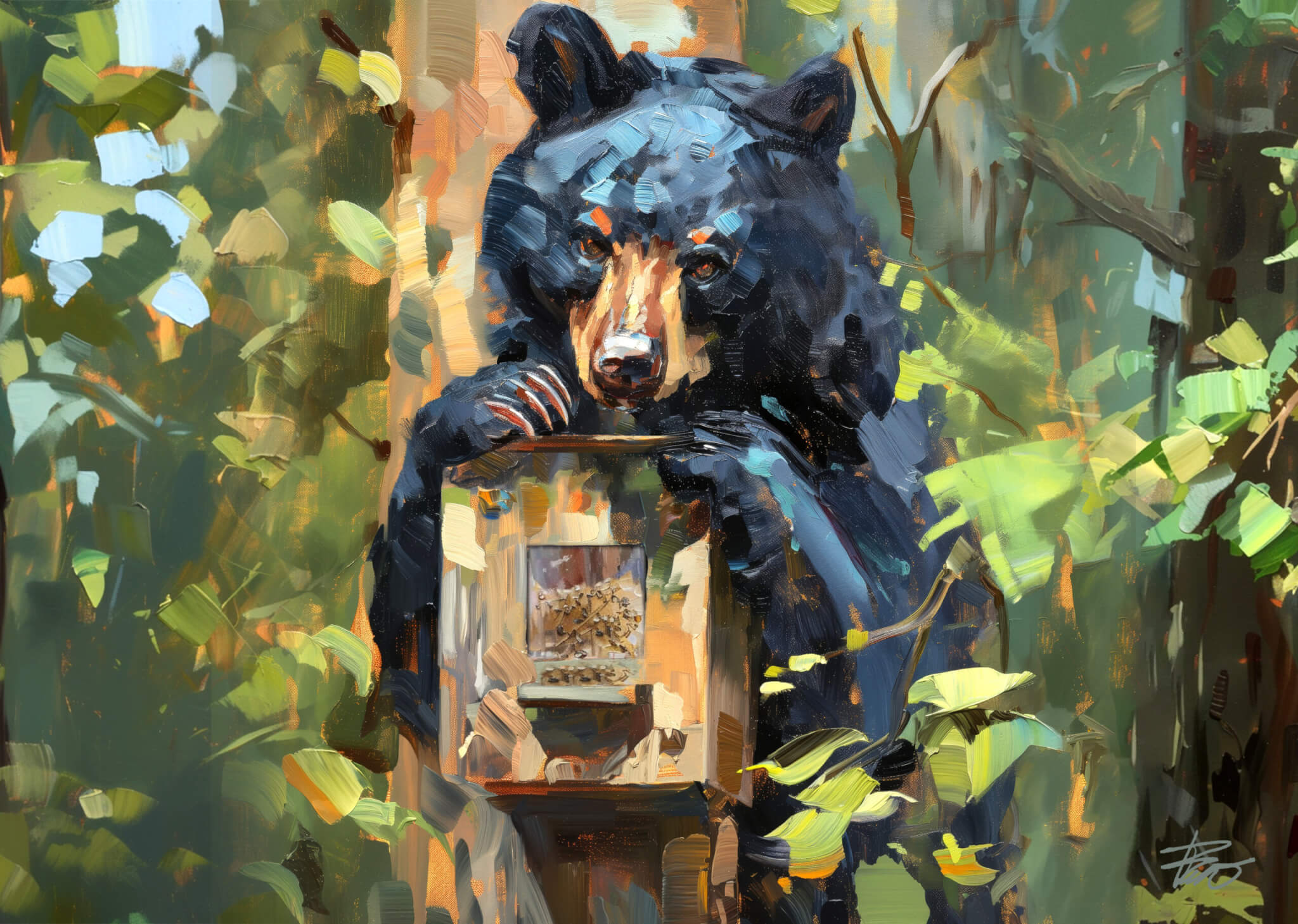By Wilson Kerr — Columnist
When it comes to black bears, Winnie-the-Pooh said it well. “A little consideration, a little thought for others, makes all the difference.” This line from A.A. Milne’s classic story yields big rewards in most circumstances, but when it comes to bears, it can save a life.
A bear’s life.

Nearly wiped out in Massachusetts by 1900 due to unregulated hunting, black bears are making a comeback thanks to conservation measures, especially in western Massachusetts. We now have about 4,500 in the state, and the population is growing by about eight percent a year.
Mother bears (sows) boot their male cubs (boars) out of their territories after raising them for two years, and it’s these wandering teenagers that often have troublesome interactions with people.
Most black bears (Ursus Americanus), as their name implies, have thick black fur. Males can weigh up to 600 pounds and females 400 and they are the only bears native to New England. As omnivores, they eat both meat and plants and have excellent eyesight and hearing.
Black bears are considered quite shy and reclusive compared to their larger and more aggressive Western cousin, the grizzly bear. Black bear attacks on people are extremely rare, with an average of one fatal attack per year in the entire U.S.
Black bears hibernate for about 100 days each winter, and their heart rates drop from 50 beats per minute to just eight. They survive only on fat reserves and are considered “light” hibernators, meaning they are not fully asleep — more like a deep rest.
Mother bears give birth in their dens in late winter to tiny hairless eight- to ten-ounce cubs and must generate enough rich milk to quickly grow them to four or five pounds before they emerge together in April.
Out, about — and hungry
After losing up to 30 percent of their body weight, they leave their dens understandably hungry. For the next several months, in May and June, they work hard to regain weight, and this is when they are most likely to have negative interactions with people, especially the two-year-old males striking out on their own. A recent Concord Bridge article chronicled a visiting bear who fit this profile.
As the black bear population recovers, it’s important to be “bear aware,” especially when it comes to bird feeders. This is where a little thought and consideration can help.
You see, black bears just love high-calorie birdseed, and once they locate a food source, they will visit it over and over. This can also happen with unsecured garbage, but birdseed is, by far, the biggest source of problems. Once a bear becomes “habituated” and links food with houses and people, it often must be killed by wildlife officers.
A good adage to remember is, “A fed bear is a dead bear.”
Do your part
You can help black bears stay wild by taking bird feeders down in March before hungry bruins emerge from hibernation. Birds can find their own food in the spring and summer months, and this consideration can help mitigate conflict.
Also, secure your trash inside your garage and never, ever purposefully feed a bear. Black bears need lots of space, and as forests are bulldozed for new homes and businesses and the bear population expands eastward, they are being squeezed.
Winnie-the-Pooh had it right — a little consideration can make all the difference, and while the chances of a bear hurting you are very low, the chances of you inadvertently causing a bear’s demise by feeding it are pretty high.
Until next month, please remember to do your part and stay “bear aware” so people and black bears can all spend Time Outdoors without conflict. Christopher Robin, Tigger, and Eeyore will thank you.
______
Wilson Kerr lives in Concord and is an avid outdoorsman and amateur naturalist. This monthly column is written to help grow awareness of the wonders of nature. In this increasingly fast-paced and technology-packed world, it is important to stop and take in the beauty of our area and the animals that inhabit it. The author hopes this column will be read by families and used as a teaching tool and that you will spend more… Time Outdoors.



